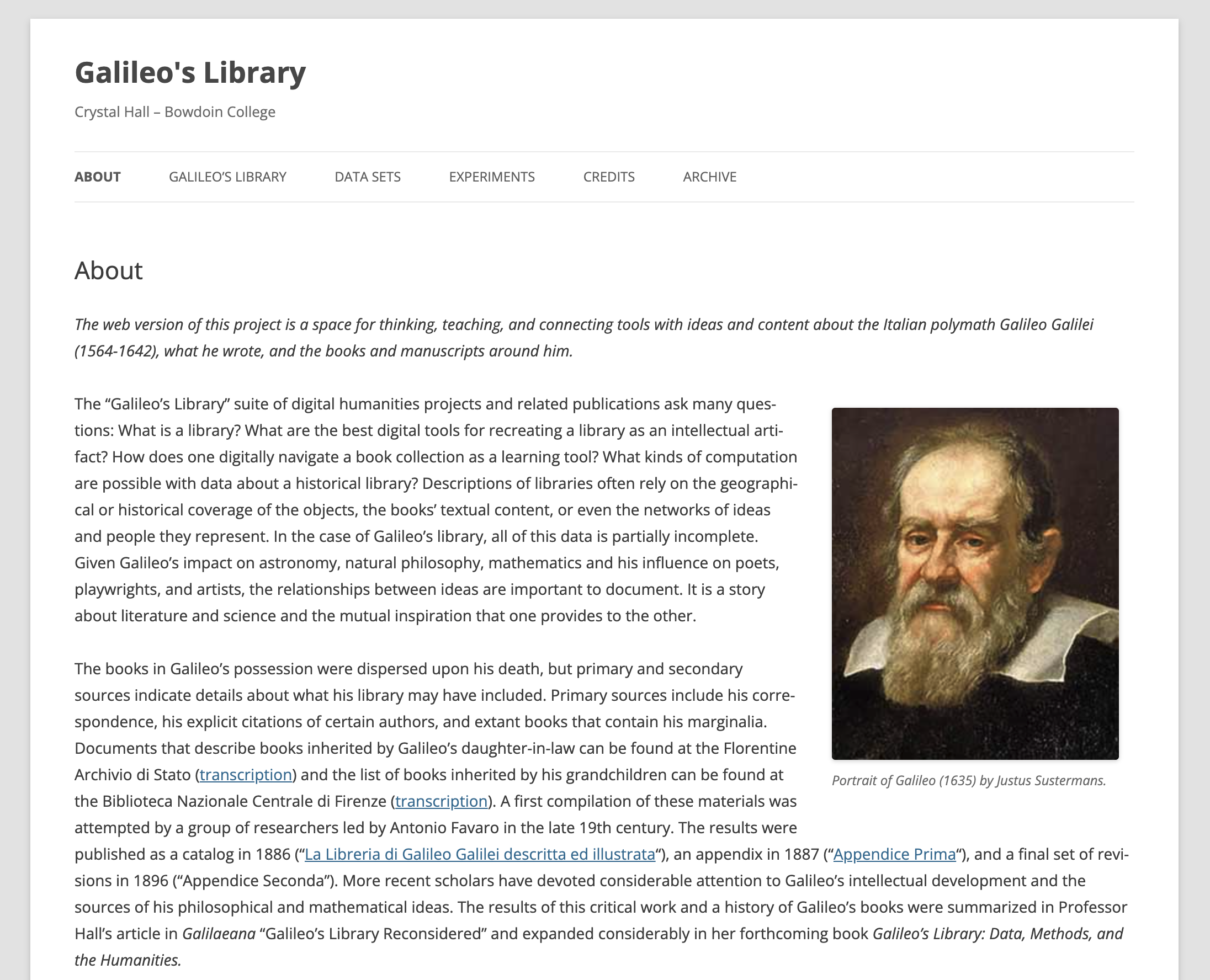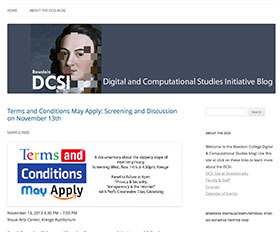 Professor Crystal Hall’s “Galileo’s Library” suite of digital humanities projects and related publications ask many questions: What is a library? What are the best digital tools for recreating a library as an intellectual artifact? How does one digitally navigate a book collection as a learning tool? What kinds of computation are possible with data about a historical library? Descriptions of libraries often rely on the geographical or historical coverage of the objects, the books’ textual content, or even the networks of ideas and people they represent. In the case of Galileo’s library, all of this data is partially incomplete. Given Galileo’s impact on astronomy, natural philosophy, mathematics and his influence on poets, playwrights, and artists, the relationships between ideas are important to document. It is a story about literature and science and the mutual inspiration that one provides to the other.
Professor Crystal Hall’s “Galileo’s Library” suite of digital humanities projects and related publications ask many questions: What is a library? What are the best digital tools for recreating a library as an intellectual artifact? How does one digitally navigate a book collection as a learning tool? What kinds of computation are possible with data about a historical library? Descriptions of libraries often rely on the geographical or historical coverage of the objects, the books’ textual content, or even the networks of ideas and people they represent. In the case of Galileo’s library, all of this data is partially incomplete. Given Galileo’s impact on astronomy, natural philosophy, mathematics and his influence on poets, playwrights, and artists, the relationships between ideas are important to document. It is a story about literature and science and the mutual inspiration that one provides to the other.
Digital and Computational Studies Initiative Blog

New and emerging technologies are transforming the production and dissemination of knowledge. Digital and computational methods and analysis are creating the ability and opportunity to address new questions and data sets, and adding new perspectives to the core questions that have always concerned the humanities, social sciences, and natural & physical sciences.
But these technological transformations are not solely a one-way street. The liberal arts, broadly speaking, also have the power – perhaps the responsibility – to participate in and shape the development, use and interpretative capabilities of these tools. Bowdoin’s “Digital and Computational Studies Initiative” invites faculty across the College to work together to integrate new technologies, methodologies and forms of knowledge production into our curriculum and our scholarship.